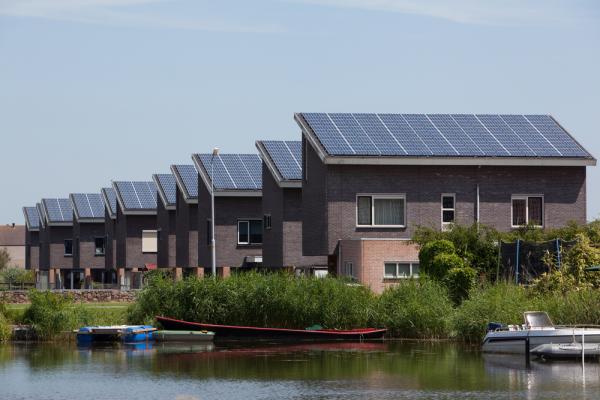EARLIER THIS YEAR, 14 solar panels were installed on my roof. Each day since—in fact, multiple times a day—I've eagerly checked our online meters, as the sun replaces coal and nuclear plants as the provider of my home's electrical needs.
I've waited a long time for this. I attended my first energy conference in the late 1970s, when I joined several other students from the hunger action group at our Jesuit college, Seattle U., for the 20-hour van ride to Denver—even then, the connection between poverty and energy issues was clear.
That conference was one of several conducted by the U.S. Catholic bishops to gather input for what became a major and still-relevant document published in 1981 under the unassuming name "Reflections on the Energy Crisis." The statement noted that "solar power can help open the way to permanent energy security, pointing beyond the end of fossil fuels."
So last summer I was thrilled to sign a contract with a company called SolarCity, which installed the solar panels on my rooftop under a lease arrangement—they own the panels, and I buy solar power from them whenever the sun shines. And there's sure a lot of sunshine to tap: Every hour of daylight on earth, the sun releases the amount of energy consumed by the entire population of the planet in one year.
Read the Full Article

